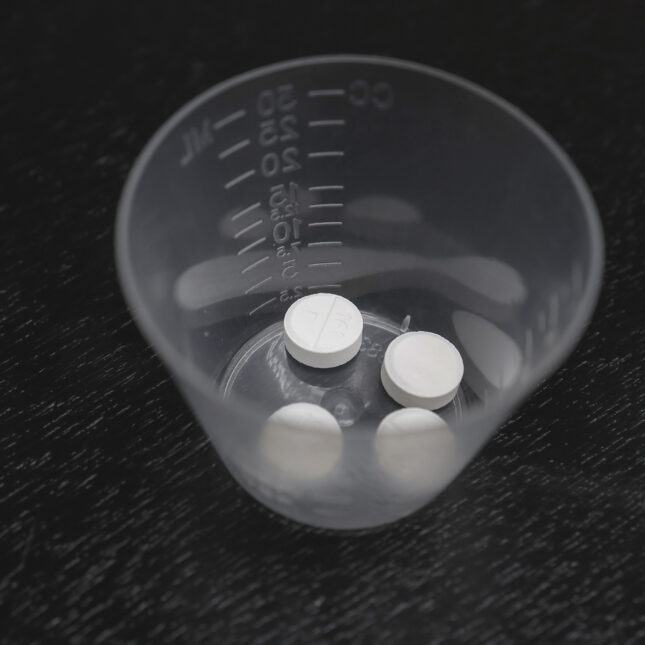
In the delivery room, time is everything. When I care for a patient experiencing an obstetric emergency, a few minutes can mean the difference between life and death. A pregnant uterus receives 700 milliliters of blood per minute leading up to delivery, and the same amount can be lost each minute if a postpartum hemorrhage is not adequately treated immediately after being recognized. Having unrestricted access to the medications that I rely on to stop that bleeding is crucial and lifesaving.
But as of Tuesday, Louisiana’s new law creates barriers for doctors and nurses to access medications commonly used in obstetrics and gynecology.
Louisiana is the first state to classify misoprostol and mifepristone as schedule IV-controlled substances, in the same category as some narcotics and other medications with potential for addiction and abuse. What started as a bill that criminalized coerced abortion, and was almost unanimously supported in the Louisiana senate, quickly took an unprecedented turn when an amendment was added to include these medications as controlled substances.
Louisiana legislators represent diverse professional backgrounds, but there are no OB/GYN physicians in the legislature who can understand the professional and medical implications of this law firsthand. Misoprostol and mifepristone do not have potential for addiction or abuse, and are safe and effective forms of treatment for miscarriage management and medication abortion. Misoprostol is routinely used to induce labor and is one of the first medications utilized when treating a postpartum hemorrhage.
Now, anyone seeking either of these medications for any reason — including non-obstetric use, such as misoprostol for peptic ulcers and mifepristone for Cushing’s disease — is at the mercy of the barriers created by this legislation. Controlled substances, according to federal law, must be stored in locked containers, from which the medication is removed and, if not used, returned in a very specific fashion. The counting, auditing, and reporting process required to track controlled substances puts an unmeasurable new load on the shoulders of nurses and pharmacists in facilities where these medications are prescribed and dispensed. The new law creates barriers and potential delays that will impact the care that we can provide our patients, putting them in unnecessary danger.
Louisiana consistently ranks among the worst states in the nation for maternal mortality. Over the past few years, the Louisiana Perinatal Quality Collaborative has supported hospitals as they standardize postpartum hemorrhage care protocols; and over this time, maternal outcomes related to hemorrhage have improved, solely due to this process standardization. Before Tuesday, misoprostol was readily available at the bedside for all deliveries that occur in a hospital or birthing center.
Hospitals and pharmacies are now adjusting policies to be compliant with the new law, while trying to maintain as much access to misoprostol as possible. This law will also create new burdens for pharmacists and nurses. The process change triggered by the new law has the potential to precipitate a downward spiral in maternal outcomes across Louisiana, as physicians, nurses, and pharmacists adapt their practices and routines to the new policies.
In addition to hemorrhage management, misoprostol (and mifepristone) can be prescribed in clinic to treat miscarriage, in order to avoid the risks of surgery, which is the alternative. When I practiced as a general obstetrician, I took care of patients experiencing miscarriage multiple times every day. In urban areas, patients have multiple options for filling a prescription for controlled substances. Rural pharmacies may not have the capacity to stock and dispense a controlled substance, which will impact patients’ ability to access these necessary medications. This could result in delays in care, increased rates of surgery in patients experiencing miscarriage, and other adverse outcomes for patients in rural areas, who already face many barriers to accessing maternity care.
My colleagues, like me, are confused and frustrated by this law and its unintended consequences. I didn’t choose this profession to navigate legal obstacles, but to provide compassionate care during some of the most pivotal and vulnerable moments in someone’s life. Restricting access to medications like misoprostol not only undermines my ability to do so but puts my patients in unnecessary danger.
Caring for a patient during an obstetric emergency requires my complete focus and attention in order to preserve the life of the mother and the baby. The delivery room is a place of healing, not hesitation. The moment I pause in the delivery room after calling for misoprostol, to confirm with myself that I am following the rules of the law, is the moment that the oath I took when I became a physician is violated because at this moment, I am not doing what’s best for the patient but instead making sure I am avoiding prosecution.
The last thing I need to be asking myself during an emergency, while running through my mental checklist that I’ve used in every postpartum hemorrhage I’ve ever attended, is “could I go to jail for this?”.
Jane Martin is a maternal fetal medicine physician in Louisiana.





